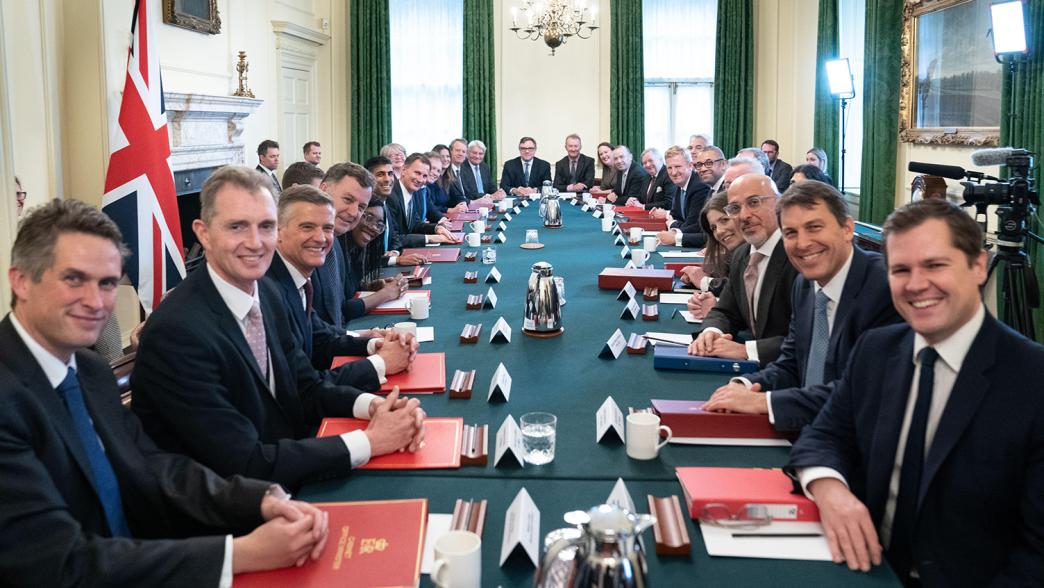Making decisions in government
What are the key decision-making processes in government, and how can you ensure you get what you need to?

"We would make decisions quickly; we’d have a conversation in the morning, private office would give us a recommendation in the afternoon, and it could be made by the evening – you know, it was that quick."
Tracey Crouch, Parliamentary under secretary of state at DCMS (2015–18)
How does decision making work in government?
You can expect to make big decisions from your first day in the job as minister – and lots of them. But while the ministerial code gives an overview of some of the formal structures for decision making in government, there is little guidance available on how it works in practice.
Many of your decisions will be made at departmental level. Some of them you will instigate: once you have communicated your desire to pursue a policy or achieve an aim, officials will go away and work up options for you to approve. Other decisions will be required as policies and problems escalate through the department, or as external events arise.
Your private office can help to explain any processes specific to your department, but there are some commonalities across government:
- Submissions – Civil servants provide formal advice and request sign-off for decisions in a ‘submission’ or written document submitted to your red box. This will typically include an explanation of why you are being asked to take a decision, several policy options, their risks and benefits, with recommendations for action. Supporting evidence is usually annexed.
- Meetings within the department – You may also want to receive advice in person, negotiate with other parties, or discuss decisions with officials before signing them off in writing.
Some decisions affect the work of multiple parts of government, in which case the question is not just what you think, but what ministers in other departments can agree to. You will need to negotiate with them to decide the best course of action. There are several formal routes through which this can take place:
Cabinet – A group of senior ministers which meets once a week, chaired by the prime minister. The cabinet is supposed to be a space for private and frank discussion, but once a decision has been agreed, all ministers are expected to abide by it. In theory the cabinet is the senior decision-making body in government, but in practice this is not always the case. Prime ministers sometimes prefer to broker decisions with secretaries of state bilaterally or in small groups ahead of time.
Cabinet committees – Smaller groupings of specific ministers who discuss a related subset of issues, for example, those to do with science and technology. Decisions taken in a cabinet committee are binding on all government ministers, as if agreed by the full cabinet. The effectiveness of cabinet committees for cross-government decision making depends on the personal relationships between the ministers who sit on them, and the importance placed on them by the prime minister.
Write-rounds – Some issues that require a decision in cabinet or a cabinet committee are not discussed in a meeting. Instead, the minister requesting a decision will write to all members of the relevant committee and ask them to agree to their proposal. If ministers disagree, they can write to the committee chair to explain their position. The cabinet secretariat will then help to broker an agreement or call a meeting to discuss the issue.
Making well-informed decisions and getting results
1. Tell your private office how you want to receive advice
Make sure that the advice you need is provided in a format that works for you. Your private office will respond best to clear direction about what it is you do and don’t want. Some useful questions to think about are:
- What time of day do you want to go through your red box?
- When you have multiple decisions to make, how do you want them prioritised?
- Do you want to set a minimum and maximum length for written submissions?
- What kind of evidence do you want to see for and against policy options?
- Would you prefer to be briefed in person?
- Do you want to discuss the decision with a group of advisers, or just one?
"Today there’s another sin that they commit, which is you get a five- or 10-page document and then on top of that, you get a two-page summary. On top of that, you get a one-page summary. And on top of that, you get your private secretary’s handwritten summary, which you probably can’t read. So it’s about information control, departmental control, debate control."
David Davis, Secretary of state for exiting the European Union (2016–18)
2. Use all the levers available to you
Formal decision-making mechanisms like submissions and cabinet committees serve an important purpose – not least, creating a written record of what decisions were taken and why. But you don’t have to work through them exclusively.
You can create your own systems within your department to feed into decision making – for instance, as secretary of state for work and pensions, Iain Duncan Smith asked for a ‘red team’ of outsiders to review the running of the Universal Credit programme.
There are also lots of informal levers available to you, both to garner additional advice and to broker decisions across government. You could:
- Speak to the team of civil servants working closest to the problem
- Set up conversations with external experts and stakeholders
- Consult your special advisers and work through their networks outside of the department, including their connections with other spads
- Build and maintain relationships with backbenchers, especially those who take an active interest in your policy area
- Talk to other ministers outside of official meetings and committees
3. Be decisive
It seems obvious, but you need to actually make a decision. You are always entitled to ask for more advice or more policy options, but putting off the choice altogether is rarely wise. The government machine quickly gums up without ministerial sign-off. And another box full of decisions to be made will pile up rapidly.
You need to accept that it won’t be possible to be across all of the detail, all of the time. Officials are there to provide expert advice – you are there to exercise judgement.
"You are not there as an expert in the department. You’ve got experts there – that’s the civil service. They’re there to advise and to tell and to help assist you. Your actual decisions are very much looking at the options and taking a political decision on them."
Sir Patrick McLoughlin, Chancellor of the Duchy of Lancaster (2016–18)
4. Follow up on your decisions
It can be easy to feel that making the decision is enough, but you need to make sure you understand how your decisions will be put into practice, and follow up on obstacles that arise in the process of implementation. Make sure you know what the next steps are.
Departments should have mechanisms in place to ensure you are kept up to speed. Discuss with your private office how you can expect to receive progress updates. For instance:
- Do you want regular check-in meetings with teams?
- Would it help to set up a spreadsheet or another tracking mechanism?
- Do you want status updates only where issues arise, or on successful projects too?
"You could take decisions but you had to insist on decisions. You then had to find out within a month whether anybody had done anything whatsoever to implement that decision."
Kenneth Clarke, Lord chancellor and secretary of state for justice (2010–12)
Questions to ask yourself
To ensure you are able to make decisions as effectively as possible, consider the following questions:
- Are you getting enough/the right kind of advice to help you make decisions, from both inside and outside the civil service?
- Are you happy with the speed at which you are able to make decisions? If not, what’s preventing you taking more or less time over them?
- Do you have a good sense of where your decision making overlaps with other departments, and routes you can take to negotiate – both formal and informal?
- Is the department keeping you informed about the progress being made or challenges being faced in implementing the decisions you’ve made?
Find out more
If you would like to discuss any of the above in more detail, or to talk about potential training we can offer on this topic, please get in touch via ifgacademy@instituteforgovernment.org.uk.
Follow us on Twitter @ifg_academy.
IfG Academy
We help those working in government to improve it, and those outside government to understand and engage with it.
Find out more
- Topic
- Ministers
- Position
- Chancellor of the exchequer Cabinet secretary Foreign secretary Health secretary Home secretary Secretary of state Minister of state
- Series
- IfG Academy Ministers Reflect
- Publisher
- Institute for Government